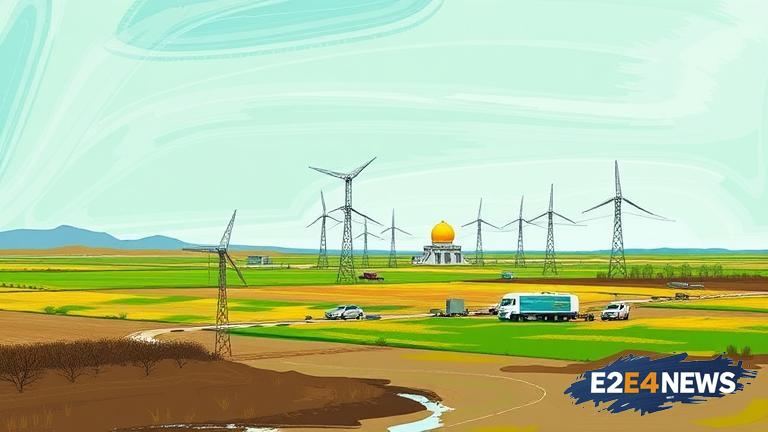Kazakhstan, a country with a rich history of industrialization, is now shifting its focus towards a low-carbon economy. The government has set ambitious targets to reduce greenhouse gas emissions and increase the use of renewable energy sources. However, this transition requires a skilled workforce that can drive the country’s sustainable future. The green workforce is expected to play a crucial role in achieving Kazakhstan’s climate goals, but the question remains, who will power this revolution? The answer lies in the country’s education system, which is being revamped to include green skills training and vocational programs. The government is also investing in retraining and upskilling existing workers to ensure they have the necessary skills to adapt to the changing job market. Moreover, Kazakhstan is looking to attract foreign investment and expertise to support the development of its low-carbon economy. The country’s strategic location, rich natural resources, and favorable business environment make it an attractive destination for green investors. As the demand for green jobs continues to grow, Kazakhstan is poised to become a hub for sustainable development in the region. The country’s green workforce will be responsible for developing and implementing sustainable solutions, such as renewable energy systems, green buildings, and eco-friendly transportation. They will also be involved in reducing waste, increasing energy efficiency, and promoting sustainable land use. Furthermore, the green workforce will play a critical role in raising awareness about the importance of environmental protection and promoting sustainable lifestyles. To achieve this, the government is launching public awareness campaigns and educational programs to inform citizens about the benefits of a low-carbon economy. Additionally, Kazakhstan is collaborating with international organizations and neighboring countries to share best practices and expertise in sustainable development. The country’s commitment to a low-carbon economy is evident in its participation in global climate agreements, such as the Paris Agreement. Kazakhstan’s green revolution is not only good for the environment, but it also presents opportunities for economic growth and job creation. The development of a low-carbon economy is expected to create new industries, jobs, and opportunities for entrepreneurship. As the country transitions to a more sustainable future, it is essential to ensure that the benefits of this transition are shared by all. The government is working to create a just transition, which prioritizes the needs of workers, communities, and vulnerable populations. In conclusion, Kazakhstan’s green workforce will be the driving force behind the country’s low-carbon economy. With the right skills, training, and investment, the country can achieve its climate goals and become a leader in sustainable development. The future of Kazakhstan’s green revolution looks promising, and it will be exciting to see the impact that the country’s skilled workforce will have on the environment and the economy.
